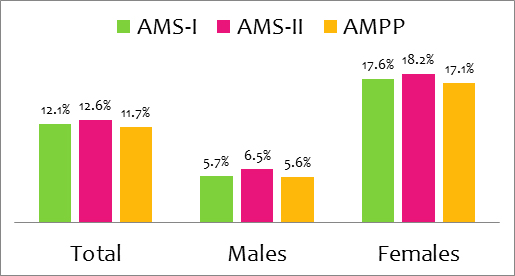Why Do You Get Migraines During Your Period?
When the menstrual cycle begins, hormone is fluctuating. 1 – 3 days before the menstrual cycle, estrogen level has promptly decreased (estrogen withdrawal). Therefore, highly sensitive people (from heredity) or migraines sufferers may be attacked by migraines.

In premenopausal, women may see a worsening of their migraines because of a significant change and fluctuations of hormone. Symptoms like hot flashes may affect to your sleep and cause of migraines.
Symptoms of Menstrual Migraines
Menstrual migraine is most likely to occur in the two days leading up to a period and the first three days of a period. A menstrual headache is more severe and longer than normal migraine. It may accompany by nausea, vomiting and sensitivity to bright lights sounds and odors. Some people may not response to medications or easy migraine headache recurrence.
Treating Menstrual Migraines
The treatment divides into 2 steps
- For acute treatment, the treatment is same as common migraine treatment such as taking triptans, NSAIDs, etc. However, doses of medication may higher than regular or need the combination of other medicines. The treatment shall perform promptly and appropriately.
- For preventive treatment, people with severe attacks and low response to acute pain killer are candidate for preventive therapy. The medicines are administered into 2 options which are the short-term doses prior menstruation and long-term doses in consecutive days.

The migraine medications include triptans, NSAIDS, contraceptive (pill, gel, and patch). Each of them has particular pros and cons based on individual factors.
The contraceptive or estrogen products are medicine for migraine with aura patients. The possible risk of them is stroke. Therefore, the group of migraine with aura and high risk of vascular disease patients shall have more investigation and consult a specialist before contraceptive usages.
Menstruation may generate a greater risk of migraine 2 times than normal.
